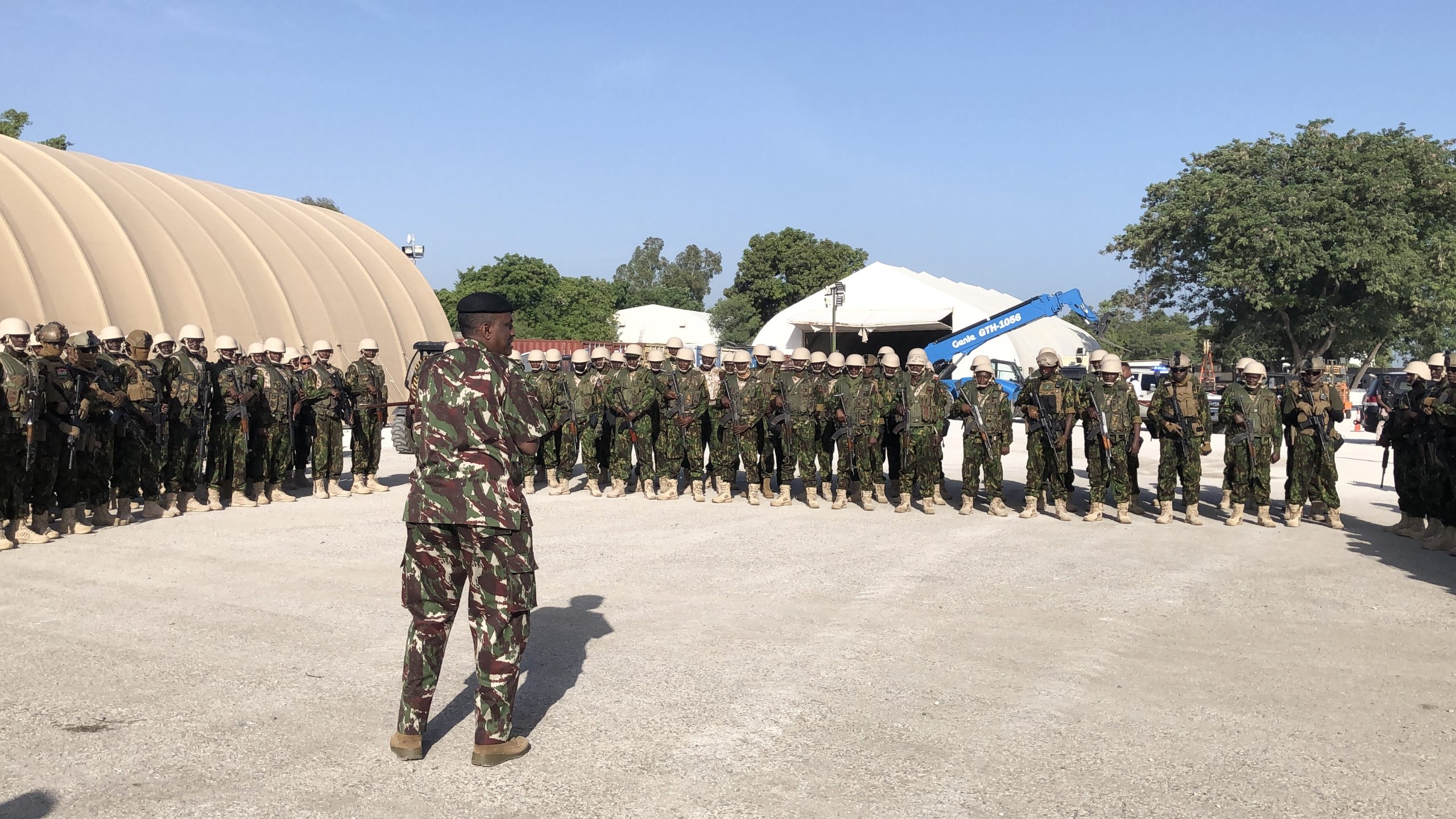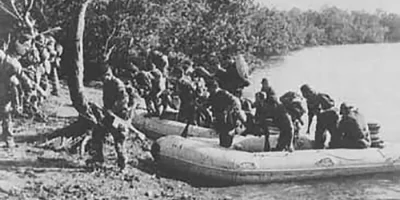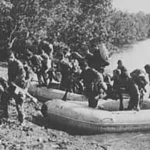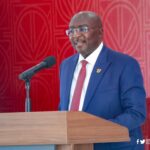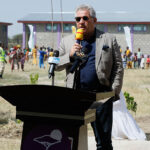Overview:
At a meeting of the UN Security Council, following a request from China and Russia, the resolution to transform the multinational mission in Haiti into a UN peacekeeping mission once again faced opposition. Expressing a desire for an update on the situation on the ground and to hear positions on the deployment of a new peacekeeping operation, China and Russia stated that Haiti does not meet the necessary conditions for such a mission.
Additional reporting by Juhakenson Blaise
NEW YORK— Russia and China firmly opposed U.S.-led efforts to transition the Kenya-led multinational force in Haiti into a United Nations peacekeeping mission, questioning the effectiveness and motives behind such a move.
The opposition emerged during a Security Council meeting on Wednesday, Nov. 20 reviewing the deployment of the Kenya-led force to combat escalating gang violence in Haiti. The U.S. had floated the possibility of shifting the force under U.N. control, citing the need for international legitimacy and long-term support.
Russia’s deputy U.N. ambassador, Dmitry Polyanskiy, dismissed the proposal as premature and unnecessary, arguing it could entangle the U.N. in a volatile situation without guarantees of success.
“History has shown that peacekeeping missions often exacerbate rather than resolve conflicts,” he said.
China echoed similar reservations, emphasizing the importance of addressing Haiti’s internal governance issues first.
“Without tackling the root causes of instability, any force will struggle to achieve meaningful progress,” said China’s ambassador Zhang Jun.
“Deploying a peacekeeping operation at this time is nothing more than putting peacekeepers on the front lines of battles with the gangs, which would expose the peacekeepers,” said China’s Deputy Ambassador Geng Shuang.
During the meeting, Dr. Jean William Pape, a leading Haitian public health expert, delivered an impassioned testimonial highlighting the dire conditions on the ground. He described a country paralyzed by gang violence, with hospitals struggling to function and thousands displaced.
“The international community must act urgently,” Pape urged, calling for greater coordination and sustained financial support for any intervention.
Ambassador Dorothy Shea highlighted the Security Council’s disagreements and recent progress in addressing Haiti’s crisis during her address.
“As we all know, there are deep divisions and disagreements on this Council, but we are proud to have worked together to make real progress here,” Shea, the U.S. Deputy Representative to the United Nations Ambassador said during her address.
In 2024 alone, the Security Council adopted unanimously three major resolutions: the renewal of the mandate of the UN Integrated Office in Haiti (BINUH), the renewal of the MSS mission mandate, and the renewal of the UN Haiti Sanctions regime and expansion of the arms embargo.
The Kenya-led force, approved by the U.N. last month but not yet fully deployed, is estimated to cost $200 million, with the U.S. pledging the majority of the funding along with equipment. Critics, however, question whether this budget is sufficient to address Haiti’s entrenched security challenges.
The U.S. push for U.N. involvement reflects broader concerns about the sustainability of the mission. Ambassador Linda Thomas-Greenfield previously argued that a U.N.-mandated operation would provide greater accountability and global support but admitted it would require buy-in from all Security Council members.
Haiti’s ambassador, Antonio Rodrigue, painted a grim picture of the worsening security situation, stressing the urgency of transforming the MSS into a peacekeeping mission, as requested by the Haitian state. He mentioned the armed gang attacks in several areas, which are undermining the well-being of the Haitian people and the stability of the entire Caribbean region.
“A peacekeeping operation would provide Haiti with the necessary framework to disarm its armed groups, restore peace and security, restore the rule of law, and allow the Haitian National Police (PNH) to rebuild,” said Rodrigue.
“A peacekeeping operation would signal that the international community is determined to support the Haitian people in their quest for security and justice.”
Deploying a peacekeeping operation at this time is nothing more than putting peacekeepers on the front lines of battles with the gangs, which would expose the peacekeepers,”
China’s Deputy Ambassador Geng Shuang
The meeting took place as the gang violence situation in Haiti worsens, particularly with the rise in insecurity since Nov. 11.
The latest figures from the UN High Commissioner for Human Rights report that at least 150 people have been killed, 92 injured, and around 20,000 displaced in just one week. The UN specifies that approximately 700,000 people are now internally displaced in the country, half of whom are children.
This new toll brings the total number of victims of gang violence in Haiti this year to more than 4500 deaths and at least 2,000 injuries related to criminal activities.
During her address on Nov. 20, Shea acknowledged the request made by the Haïtain government through Haiti’s Transitional Presidential Council, CPT regarding the transition of the MSS mission to security mission in September and again at the end of October.
“The request was described not only as a matter of necessity but of urgency,” said Shea.
The Caribbean and fears of growing international arms trade
Jamaica also expressed concern about the impact of the situation in Haiti on the region, particularly with criminal networks outside Haiti exploiting the crisis to fuel the arms trade.
“The crisis in Haiti is affecting the security of the Caribbean region by facilitating the growth of transnational organized crime,” said the Jamaican representative, whose country is a transit point for thousands of trafficking operations, according to a report by the U.S. Government Accountability Office (GAO) on arms trafficking in the Caribbean region.
The U.S. report states that most firearms used in 90% of homicides in the Caribbean come from the United States, specifically from Florida, Georgia, and Texas.
The investigation further notes that between 2018 and 2023, Jamaica ranked first among 25 Caribbean countries and territories, with at least 2,250 firearms recovered. According to GAO investigators, law enforcement in Jamaica revealed that while the country has nine government-controlled ports, 151 are not under control.

